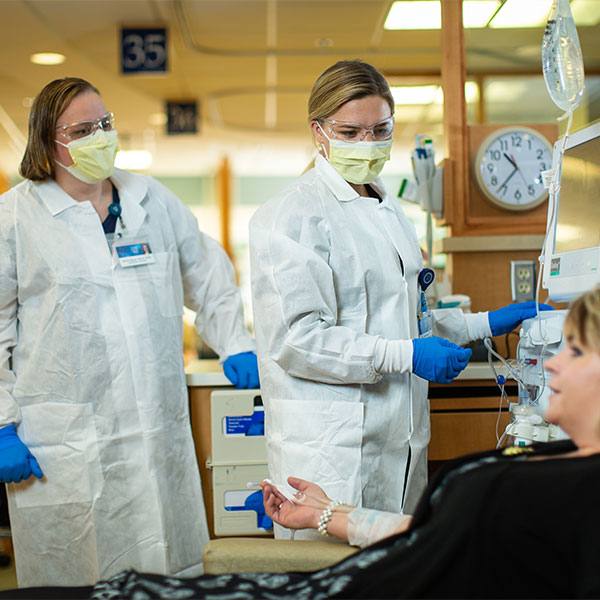The largest regenerative medicine clinical trial to date for heart failure finds stem cell therapy is safe over the long term and may benefit some patients with advanced left ventricular enlargement. This multinational research, co-led by Andre Terzic, M.D., Ph.D., director of Mayo Clinic's Center for Regenerative Medicine, and published in ESC Heart Failure, offers guidance in selecting which patients with heart failure are most likely to respond to stem cell therapy.

"Optimizing the reparative functionality of patient-derived stem cells is promising," says Dr. Terzic. "Notably, though, not all patients with heart failure respond uniformly to stem cell therapy. Some respond particularly well; whereas, others show only a neutral outcome. Identifying means to preselect for those that will benefit is therefore needed."
The research
The Congestive Heart Failure Cardiopoietic Regenerative Therapy trial, known as CHART-1, enrolled 315 heart failure patients from 39 medical centers across 10 countries. In one group, researchers studied cardiopoietic stem cell therapy added to standard of care treatment for heart failure. The results were compared to the control group in which a placebo was given with standard treatment for heart failure. Cardiopoietic cells, discovered at Mayo Clinic, are derived from adult stem cell sources, typically of bone marrow origin, and have shown potential to heal failing hearts. Researchers followed both groups for two years to better understand the long-term outcome of stem cell therapy.
"Analyses suggest that cardiopoietic stem cell therapy on top of standard-of-care therapy principally benefits a subgroup of heart failure patients suffering from advanced disease characterized by enlargement of the left ventricle," says Dr. Terzic. "These patients showed reduced risk of death or hospitalization after cardiopoietic stem cell therapy."

Heart failure is a common condition in which the body is not able to pump enough blood to maintain healthy cardiovascular function. One of the contributors is coronary artery disease in which plaque buildup causes a narrowing of arteries. Heart failure affects approximately 5.7 million people in the U.S. and is a leading cause of death, according to the National Institutes of Health. There are no therapies to reverse the damage from heart failure, and the long-term prognosis is poor.
This study is the culmination of research going back 20 years, beginning with the discovery of the cardiopoiesis process at Mayo Clinic. That research translated into clinical studies engaging multiple trans-Atlantic collaborations charting the development pathway for advanced regenerative therapies. Additional research and long-term clinical follow-up will be needed to guide future clinical trials on stem cell therapy for heart failure.
For background on how Mayo began this effort click through to "Mayo Clinic and Collaborators Develop New Tool for Transplanting Stem Cells."







